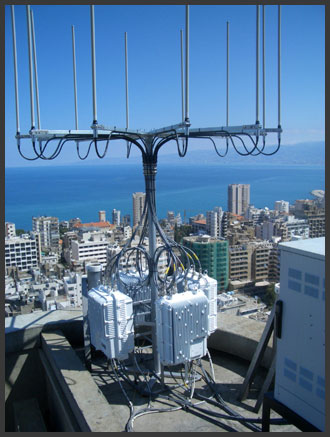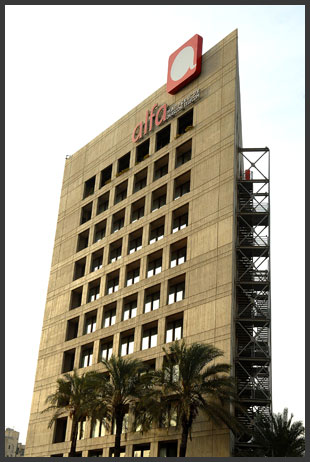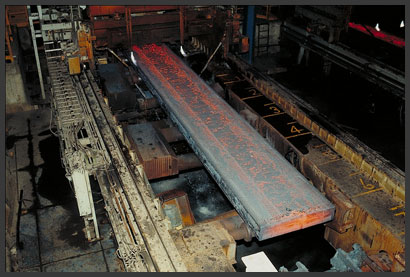Lebanon Privatization
The focus of Lebanon Privatization is on telecom and electricity. Council for Lebanon Privatization has two projects in the telecom sector , one of the Lebanon privatization of mobile networks and the other is the creation of a national incumbent integrated operator because fixed line and broadband services are provided by the Ministry of Telecommunications and we need to form a corporate entity around that and transfer employees from the Ministry to the this entity to be called Liban Telecom.
Under the guidance of the World Bank the government of Lebanon has made noticeable efforts to reduce the amount of red tape in the public sector so as to streamline business processes and encourage the business climate. How does this compare to other regional players and what are the trends you see in Lebanon?
The Lebanese economy has done extremely well the past few years and has been impacted very little by the international financial crisis. Lebanon has continued to grow throughout this time and the banking sector has performed well. The country attracted more than six million dollars in new deposits last year and we have experienced very positive GDP growth. I think that the country will continue to do well and the business climate is much more relaxed now. We have a government geared towards national unity and that will invest in Lebanon and this is very encouraging.

What needs to be done to further reduce the red tape and what is the greatest challenge in the Lebanese economy?
Red tape is inevitable and the important thing is to reduce this. 69 laws aimed at reducing red tape are waiting to go to parliament and are aimed towards making government processes more efficient and we hope to see these implemented in the next few years. The World Bank has shown Lebanon consistently improving in its ability to attract foreign investment and as a destination where red tape has improved. The greatest challenge remains in the capital markets and there is a lot of work to be done to make the market for efficient and the Beirut Stock Exchange needs to attract larger entities. Through the privatization council we are aiming to privatize the telecommunications sector and this is the most important locomotive of growth for stock exchanges worldwide. Once we have that we are very confident the Beirut Stock Exchange will have the liquidity international investors would like to see.
What needs to be done to bring more people to the stock exchange?
I think the structure of our economy is the reason. Our stock exchange lacks liquidity and therefore, people don’t trust that they will be able to invest and exit comfortable and efficiently. We also need the stock exchange to encourage small and medium enterprises to list themselves. These are typically family owned businesses and they are rapidly expanding. Listing yourself on the stock exchange brings Lebanese companies thousands of partners and more confidence to lead them away from borrowing from banks.
Lebanon issued an invitation to participate in the tender process for the sale of two mobile businesses and associated mobile licensees. What are you expectations from this?
 The Lebanese telecom sector is still in the hands of the government and this monopoly has set Lebanon behind in terms of technological advancement. We only have 2.5g in terms of our mobile services unlike other countries who operate in 3g and 4g. Our broadband penetration is very limited despite that we have the highest penetration in the Arab world. The infrastructure has not caught up with the needs of the Lebanese consumer but the privatization of the telecom sector will help in a major way with investments and decision making for new technology. Being a part of a bureaucracy makes this very difficult and if you are a private company you can do this much more quickly.
The Lebanese telecom sector is still in the hands of the government and this monopoly has set Lebanon behind in terms of technological advancement. We only have 2.5g in terms of our mobile services unlike other countries who operate in 3g and 4g. Our broadband penetration is very limited despite that we have the highest penetration in the Arab world. The infrastructure has not caught up with the needs of the Lebanese consumer but the privatization of the telecom sector will help in a major way with investments and decision making for new technology. Being a part of a bureaucracy makes this very difficult and if you are a private company you can do this much more quickly.
What would you have done ideally to attract investors?
We don’t see our role as directed mainly towards foreign investors. Our role is to make certain sectors of the economy more efficient and provide certain services to the Lebanese consumer at a lower cost. We have to prioritize because some sectors allow us to meet our goals much faster and the two sectors we focus on are telecom and power because electricity is very important for Lebanon economy. We have also been lobbying for legislation for a public-private partnership (PPP). PPP will play a central role since Lebanon lacks infrastructure in all domains from roads, waste, water treatment, parking, ect. The government lacks the means to invest in infrastructure so therefore we are seeking more participation from the private sector. To the extent foreign investors are interested in Lebanon we will work with them as much as we can to facilitate this platform.
How do you see the prospect of international companies to participate in this project?
I think these prospects are excellent. PPP is a type of structure commonly used in Europe, The US, and Asia as well as more and more in emerging markets. The major players are very well prepared for this type of agreement and have teams on staff that specialize in these things.
” Once we open the way for PPP in Lebanon
I think we will see a lot of interest from not only
Lebanese investors, but foreign investors as well.”
We don’t discriminate and we would welcome investment to lebanon from anywhere. We don’t prefer one type of investor over another or one nationality over another. The important thing is abiding by Lebanese rules but otherwise everyone is most welcome.
What is your agenda for 2010 and beyond and what privatization initiatives are you working on at the moment?
Our focus is on telecom and electricity. We have two projects in the Lebanon telecom sector , one of the privatization of mobile networks and the other is the creation of a national incumbent integrated operator because fixed line and broadband services are provided by the Ministry of Telecommunications and we need to form a corporate entity around that and transfer employees from the Ministry to the this entity to be called Liban Telecom. Liban Telecom will become the national flagship operator to be initially owned by the government and privatized later on. In the power sector we have been involved on three fronts. One is the transfer of the national utility from government to corporate entity covered by the code of commerce. This is a major multi-year project that is one of our cornerstone efforts in the council for privatization. Two other projects in electricity involve the installation of electronic meters that will allow for great control of demand side management. The other project is the encouragement of independent power production (IPP) and we have done several research studies as well as acquired land for this project. We are hoping that as soon as PPP legislation is enacted we are then immediately able to tender for IPP new power plants. Hopefully this will take place in 2010 and the Higher Council for Privatization can become the PPP for the country and this will add a lot of flexibility because we can bring in experts.
How independent are you from the government?
We are not independent from the government. The Higher Council for Privatization is chaired by the Prime Minister and the members of the Council are the Ministers of Finance, Economy, Labor, and Justice. On a case by case basis the Minister responsible for a particular sector being discussed is also an ad-hoc member of the Council. The Council is really a ministerial committee but of course we have the Secretariat General of the Council which includes my staff and I who operate in a very cutting edge fashion compared to the traditional bureaucracy of the government.

What is your final message about Lebanon?
My message is that Lebanon is a fantastic destination. We see not only international investors interested in Lebanon but Lebanese investors as well. The Lebanese Diaspora is large and any Lebanese person working outside of Lebanon dreams to come back and reinvest here. There is a great environment here given the region with great weather, fantastic food, great nightlife, and a very modern working environment with highly qualified people who speak several languages and have world experience. This is one of the most cosmopolitan cities in the world.
“International investors should be attracted to the opportunity
here. We have a long way to go to catch up with other
developed economies in the world and this is where
we lack and where the problem can be turned into
an opportunity by an investor.”